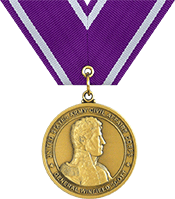Call for Civil Affairs Issue Papers: Campaigning and Civil Affairs
- Eunomia Journal
- Jun 1, 2023
- 3 min read
Updated: Sep 11, 2023
Deadline extended to 29 September.
Last year’s discussions culminated in a conversation with U.S. Army Civil Affairs & Psychological Operations Command (Airborne) Commanding General Isaac Jonson and Assistant Secretary of Defense (ASD) for Special Operations and Low-Intensity Conflict Christopher P. Maier, noted in the Association’s Roundtable Report. Both validated the major findings of the Symposium Report, including the emerging criticality of CA as the premier maneuver force in the human dimension for winning without fighting in integrated deterrence under the National Security Strategy (NSS) and National Defense Strategy (NDS).
ASD Maier stressed “campaigning” as the way for the Civil Affairs Corps to support integrated deterrence. In the NDS, it is “…the conduct and sequencing of logically-linked military initiatives aimed at advancing well-defined, strategy-aligned priorities over time.” ASD Maier saw campaigning as a deliberate leveraging, layering, and linking of all elements of power to achieve desired strategic effects. More actionable and measurable than “competing,” it entails greater civil-military integration and steady state use of CA to win without fighting, presenting new challenges for all CA force providers. Given robust policies in the Stabilization Assistance Review, Global Fragility Act and Global Fragility Strategy, the Strategy to Prevent Conflict and Promote Stability and the new DoD Civilian Harm Mitigation and Response Action Plan, CA is well positioned to enable a comprehensive framework approach to developing operations, activities, and investments for campaigning in regions and operational areas, discussed in a Eunomia Journal article. CA-led innovations like the CA Science and Technology Learning Ecosystem that Assistant Secretary of State Anne A. Witkowsky referenced at the Roundtable are among some examples. While DoD may see the value proposition of CA in strategic campaigning, CA’s role in campaigning at combatant, service component, combined joint force, and operational command levels, as well as U.S. embassies, needs development.
How can CA contribute to campaigning at especially these levels? Beyond policy, what changes in doctrine, organization, training, materiel, leadership and education, personnel, facilities, can better operationalize and integrate CA’s role in campaigning? How can joint and interorganizational coordination improve at those levels? How would CA measure progress in campaigning? How would a full concept of the CA role in campaigning apply to conflict prevention, security cooperation, irregular or gray zone warfare, and major combat operations as well as stabilization and strategic competition? Are there case lessons from CA operations or the war in Ukraine? How do the findings in Warrior Diplomats apply? How would CA in campaigning further active readiness for Compo 3 CA through regional presence and engagement?
To address the above, the Civil Affairs Association and its partners invite civil-military professionals to send original issue papers prepared in accordance with the Civil Affairs Issue Paper Guidelines. We have many reports and references in the Research Library that may provide inspiration. Make sure to review past Issue Papers or Eunomia Journal articles. Listen to episodes of the One CA podcast. Authors should also consider researching the Association of the United States Army, NATO CIMIC Center of Excellence, Modern War Institute, U.S. Army Peacekeeping & Stability Operations Institute, Joint Special Operations University, and Joint Civil-Military Interaction Network.
Authors will present their papers at the end of the Worldwide Civil Affairs Conference on 7-10 December at Ft. Liberty, NC. The top three presented papers will receive cash awards of: $1,000 as 1st prize; $500 as 2nd prize; and $250 as 3rd prize. Selection is based on: quality of response to the call for papers and Issue Paper Guidelines; strategic relevance and originality; discussion clarity and sourcing of argument; and feasibility and systemic impact of recommendations. Papers prepared jointly among civil-military, interorganizational, and multinational professionals are especially welcome.
Send questions and papers to papers@civilaffairsassoc.org no later than Friday, 29 September 2023.

